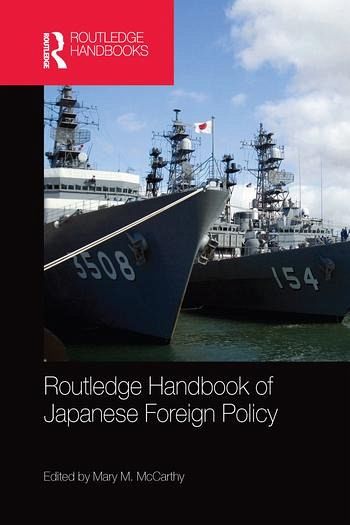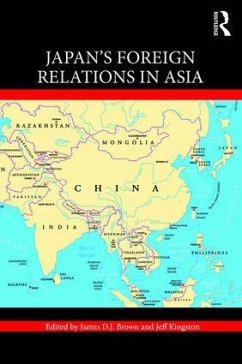
Routledge Handbook of Japanese Foreign Policy

PAYBACK Punkte
25 °P sammeln!
From a nuclear North Korea and territorial disputes in the East China Sea, to global climate change and Asia-Pacific free trade agreements, Japan is at the center of some of the most challenging issues that the world faces today. Taking an interdisciplinary approach, comprising contributions from the fields of politics, sociology, history, and gender studies, this handbook creates a comprehensive and innovative overview of the field, investigating the widening variety of interests, sometimes competing, that constitute Japanese foreign policy.Organized topically, it is divided into sections, in...
From a nuclear North Korea and territorial disputes in the East China Sea, to global climate change and Asia-Pacific free trade agreements, Japan is at the center of some of the most challenging issues that the world faces today. Taking an interdisciplinary approach, comprising contributions from the fields of politics, sociology, history, and gender studies, this handbook creates a comprehensive and innovative overview of the field, investigating the widening variety of interests, sometimes competing, that constitute Japanese foreign policy.
Organized topically, it is divided into sections, including:
- Japan's evolving foreign policy landscape
- Global environmental and sustainable development
- International and national security
- International political economy
- International norms and civil society.
Providing an evaluation of the key actors, institutions, and networks influencing Japanese foreign policy, the Routledge Handbook of Japanese Foreign Policy is an essential resource for students and scholars of Japanese and Asian Politics, International Relations, and Foreign Policy.
Organized topically, it is divided into sections, including:
- Japan's evolving foreign policy landscape
- Global environmental and sustainable development
- International and national security
- International political economy
- International norms and civil society.
Providing an evaluation of the key actors, institutions, and networks influencing Japanese foreign policy, the Routledge Handbook of Japanese Foreign Policy is an essential resource for students and scholars of Japanese and Asian Politics, International Relations, and Foreign Policy.














